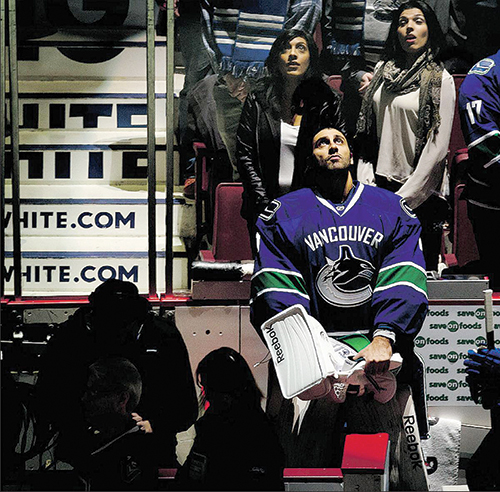Watching Mac Carruth and the Portland Winterhawks finish off the Edmonton Oil Kings to become WHL champions on Sunday, I started to think about the potential professional futures of these young players. And as I considered the possibilities of the long, fruitful NHL careers ahead of the skaters who had just claimed the Ed Chynoweth Cup, I finally found something to appreciate about the most recent lockout in the NHL.
The albatross contract

Watching Mac Carruth and the Portland Winterhawks finish off the Edmonton Oil Kings to become WHL champions on Sunday, I started to think about the potential professional futures of these young players. And as I considered the possibilities of the long, fruitful NHL careers ahead of the skaters who had just claimed the Ed Chynoweth Cup, I finally found something to appreciate about the most recent lockout in the NHL.
At least Carruth will never have to suffer the fate of Roberto Luongo in Vancouver. Thanks to the cap on the length of contracts that was settled in the belated collective bargaining agreement between the NHL and the players’ association this year, none of the guys graduating from junior hockey to the pros will have to endure the shackles of an inflexible commitment to a franchise.
Nearly dealt to the Toronto Maple Leafs at the trade deadline this season, Luongo instead found himself tethered to the Canucks through another underachieving playoff run. The three-time Vezina Trophy finalist and backstop for Canada’s 2010 Olympic gold medal-winning squad was once again supplanted by Cory Schneider—the starter for the Canucks as Vancouver was swept in the first round by San Jose. Though Schneider got the nod for Vancouver in the postseason just as he did in last year’s opening-round loss to the Los Angeles Kings, Luongo, 34 years old and in his 14th season, has been proving all year that he is still better than the starters on at least a dozen NHL teams.
But the reason that Luongo hasn’t managed to gain a fresh start is not his receding statistical production or his chokes of postseasons past; it is the 12-year, $64-million albatross currently hanging heavily around his neck. Unable to get into a rhythm as he split time with Schneider over the past two years, Luongo now can only wait and hope that a deal closes this offseason to restore him to a more regular workload in another city.
He may be disappointed once again, because any team that picks up his contract will have to work around the NHL’s salary cap, which is locked in at $64.3 million next season. Luongo’s contract, designed to exploit loopholes in the previous collective bargaining agreement, means that the franchise that ultimately adds him to its lineup is forced to dump a twelfth of the total budget on one position. It’s the kind of situation that the NBA wanted to avoid when they added an amnesty clause to their new CBA after last year’s lockout. It is the reason why no contract is guaranteed in the NFL.
In the salary cap era, it is often in the best interest of a player to not chase the highest possible compensation for their services if they wish to retain the maximum freedom of movement. After all, an eight-figure payout can all too soon become the encumbrance that prevents the athlete from achieving the full measure of success at the professional level. So, while I hope that Carruth, Ty Rattie, Seth Jones and the rest of the Winterhawks go on to earn themselves a comfortable living at the next level, I just hope it isn’t too comfortable. It’s hard to make that next save, score that next goal, hoist that next trophy and earn that next contract if your current deal keeps you from getting out onto the ice at all.





